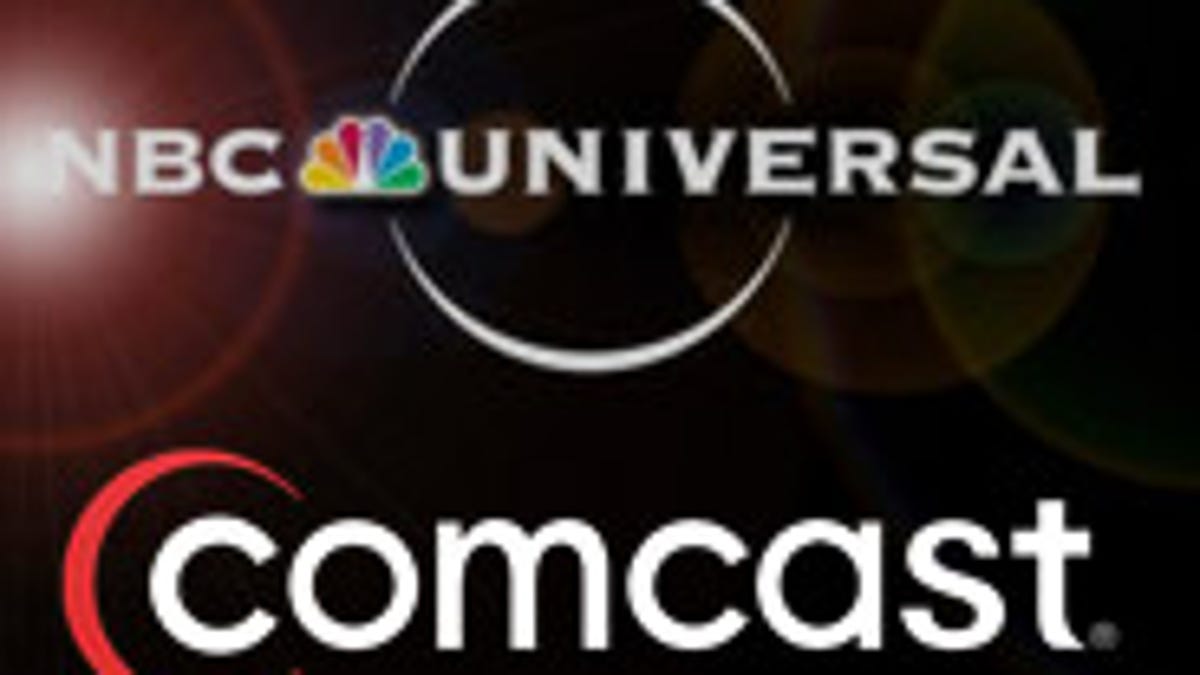Reports: Comcast-NBCU deal near approval
The agreement giving Comcast a 51 percent stake in NBC Universal could get approval from the FCC and Justice Department as early as this week, according to reports.

The deal giving Comcast a controlling stake in NBC Universal could finally be approved by the FCC, followed by the U.S. Department of Justice, as early as this week, according to reports.
According to reports in The Wall Street Journal, the Washington Post, and Hollywood news site The Wrap citing anonymous sources, the Federal Communications Commission and the Justice Department will finally pave the way for the Comcast-NBC Universal deal to close by the end of the month.
The $37 billion merger between the companies has been a long time coming. The deal, which was first announced in 2009, provides Comcast with a 51 percent controlling stake in NBC Universal. General Electric will retain the remaining 49 percent. When the deal was first announced, the companies hoped to have it accepted by regulatory bodies at the end of 2010. However, over the course of the last year, the companies faced increasing concerns that their merger might unfairly impact competing content providers and harm consumers.
The Department of Justice, which is also evaluating the merger with regard to antitrust rules, is also expected to vote to approve the joint venture. Both the Justice Department and that FCC stamps of approval are needed before the deal to form the joint venture can close.
Even though the FCC is expected to approve the merger, the commission is likely to impose conditions.
The Wall Street Journal (subscription required) and the Washington Post have reported that the new joint venture will be required to share NBC content with Internet video providers, such as Netflix, if these companies are getting content from competitors, such as CBS or Walt Disney.
The FCC is also expected to require Comcast to abide by new Net neutrality rules set to take effect later this year, the newspapers said. The agreement would require Comcast to adhere to these rules even if the rules established by the FCC, which the FCC passed separately late last year, are challenged in court.
Most of the FCC's conditions will last seven years, somewhat longer than other conditions imposed on companies involved in previous merger approvals. One exception is a condition requiring Comcast to offer $49.95 a month standalone Internet service to consumers.
The Justice Department is also expected to impose some conditions on the merger. For example, the Justice Department will impose a restriction that won't allow the joint venture to retaliate against its competitors or partners. The Justice Department imposed a similar "anti-retaliatory" provision in the merger between Ticketmaster and Live Nation, the Washington Post reported. In that merger, the Justice Department said that the new ticket company couldn't retaliate against any venue owner that chooses to use another company's ticketing services or promotional services.
For Comcast and NBC, this would mean that the joint venture would not be able punish its partners who do business with Comcast's or NBC's competitors.
Last February, Comcast CEO Brian Roberts and NBC Universal CEO Jeff Zucker fielded questions from congressional subcommittees over their proposed arrangement. Sen. Al Franken (D-Minn.) was one of the more outspoken critics, saying that his former career with NBC gave him reason to be concerned.
"I worked for NBC for many years," Franken said during a hearing. "And what I know from my previous career has given me reason to be concerned--let me rephrase that, very concerned--about the potential merger of Comcast and NBC Universal."
Those hearings were followed up by Rep. Rick Boucher (D-Va.) writing a letter to the FCC in August saying that it had a responsibility to ensure consumers were being protected. He was especially concerned that Comcast would take freely available NBC programming on services like Hulu and make them exclusively available on the provider's TV Everywhere service, which is available only to its subscribers. (Boucher was defeated in the November election.)
Those complaints were echoed by two members of Congress last month in separate letters to FCC Chairman Julius Genachowski.
Rep. Edward Markey (D-Mass.) said in his letter to Genachowski that "the joint venture would give Comcast the power, should it choose to exercise it, to deny programming to its cable, satellite, or online competitors or charge inflated prices for it."
Rep. Henry Waxman (D-Calif.) told Genachowski that a merger between the companies could "trigger significant changes in the way consumers access video programming, in the way independent programmers distribute their works, and in the way all video distributors compete for customers." However, even with those issues, both Markey and Waxman told Genachowski that they wanted to see the merger get approved, but not without imposing strict conditions first.
CNET News' Maggie Reardon contributed to this report.

